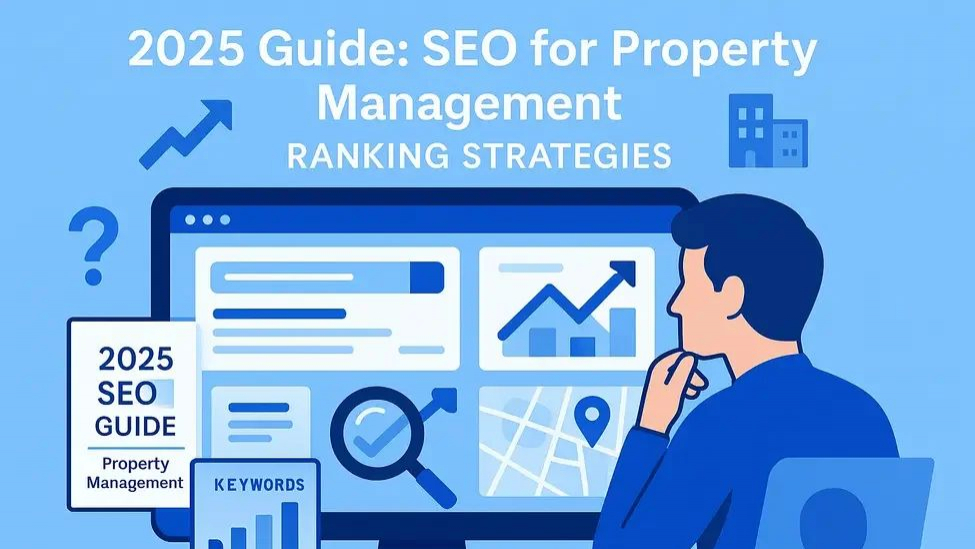In today’s digital world, almost every search begins online. Whether someone is looking for an apartment to rent, a property management company to handle their real estate, or maintenance services, Google is the first stop. If your property management business doesn’t appear in search results, you’re missing valuable opportunities.
This is where Property Management SEO plays a critical role.
Search Engine Optimization (SEO) helps property management companies rank higher on search engines, drive targeted traffic, and attract both tenants and landlords. With more competition in the real estate industry, having a strong online presence is no longer optional—it’s a necessity.
Why SEO Matters for Property Management Companies
Increased Visibility: A well-optimized website ensures your property listings and services appear in front of potential tenants and property owners.
Attracts Quality Leads: SEO brings in people actively searching for property rentals or management services, making them more likely to convert.
Cost-Effective Marketing: Unlike traditional advertising, SEO generates organic traffic without the need for continuous ad spend.
Competitive Edge: If your competitors are investing in SEO and you’re not, you’re losing business to them.
Key SEO Strategies for Property Management
1. Keyword Research
Keywords are the backbone of SEO.
Property management companies need to identify what tenants and landlords are searching for. Examples include:
“Property management company in [city]”
“Best rental management services near me”
“Apartment rentals in [location]”
Tips:
Use tools like SEMrush, Ahrefs, or Google Keyword Planner.
Focus on location-based keywords since property management is usually area-specific.
Target both service-related keywords (property management fees, rental property marketing) and tenant-related keywords (apartments for rent in Chicago).
2. On-Page SEO Optimization
Optimizing your website ensures search engines can understand and rank it. Important areas include:
Title Tags & Meta Descriptions: Include target keywords naturally. Example: “Affordable Property Management Services in Dallas | ABC Realty.”
Headings (H1, H2, H3): Organize content with clear headings that use relevant keywords.
Content Optimization: Write service pages, blogs, and FAQs that answer common client questions.
Image SEO: Optimize rental property photos with descriptive file names and alt tags.
3. Local SEO for Property Managers
Since most property management businesses serve a specific area, local SEO is crucial.
Google Business Profile: Create and optimize your profile with accurate details, photos, and service areas.
NAP Consistency: Ensure your Name, Address, and Phone number are consistent across your website and directories.
Local Directories: List your company on Yelp, Zillow, Apartments.com, and local real estate sites.
Customer Reviews: Encourage happy landlords and tenants to leave Google reviews, which improve trust and rankings.
4. Content Marketing
High-quality content helps attract visitors and establish authority. Examples:
Blog Posts: Topics like “How to Choose the Right Property Management Company” or “Top 5 Tips for First-Time Landlords.”
Guides & Resources: Publish rental checklists or landlord handbooks.
Case Studies: Showcase successful rental property management projects.
Videos & Virtual Tours: Share property tours or maintenance tips to engage potential tenants.
5. Mobile-Friendly and Fast Website
Most tenants search for rentals on their smartphones. A slow or poorly designed website can drive them away. Ensure your website is:
Mobile-responsive
Fast-loading
Easy to navigate with clear property listings
6. Backlink Building
Backlinks from authoritative sites signal credibility to Google. For property managers, backlinks can be earned by:
Partnering with real estate blogs for guest posts
Submitting press releases for new property launches
Getting listed on industry websites like Realtor.com or Zillow
7. Technical SEO
Behind-the-scenes SEO ensures your site runs smoothly. This includes:
Fixing broken links
Improving site speed
Creating an XML sitemap
Securing your site with HTTPS
8. Tracking and Analytics
SEO is ongoing, so tracking results is vital. Tools like Google Analytics and Search Console help monitor:
Traffic sources
Top-performing pages
Conversion rates
Keyword rankings
By analyzing this data, you can refine your SEO strategy and focus on what drives the most leads.
Benefits of Property Management SEO
More Leads: By ranking higher, you’ll attract landlords and tenants looking for your services.
Stronger Online Reputation: A well-optimized site with good reviews builds trust.
Better ROI: SEO provides long-term results compared to short-term paid ads.
24/7 Marketing: Even when your office is closed, your website works for you.
Common SEO Mistakes to Avoid
Ignoring Local SEO: Without optimizing for your city, you’ll miss out on local clients.
Keyword Stuffing: Overusing keywords makes your site unreadable and hurts rankings.
Poor Website Design: Even if you rank, a bad website can discourage potential clients.
Not Updating Content: Outdated property listings or blog posts can lower credibility.
Final Thoughts
Property management is a highly competitive field, but SEO can set your business apart. By focusing on keyword research, local SEO, content marketing, and technical optimization, you can attract more tenants and landlords, increase leads, and grow your business sustainably.
Unlike paid ads, SEO provides lasting benefits that compound over time. Investing in Property Management SEO today ensures your company remains visible, trustworthy, and competitive in the long run.
Property Management SEO: A Complete Guide to Attract More Tenants and Property Owners

- shanelucas112
- Aug 16, 2025 · United States ·






